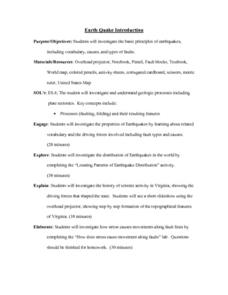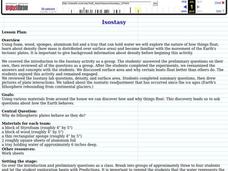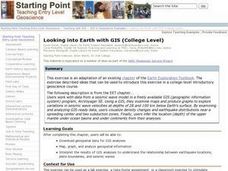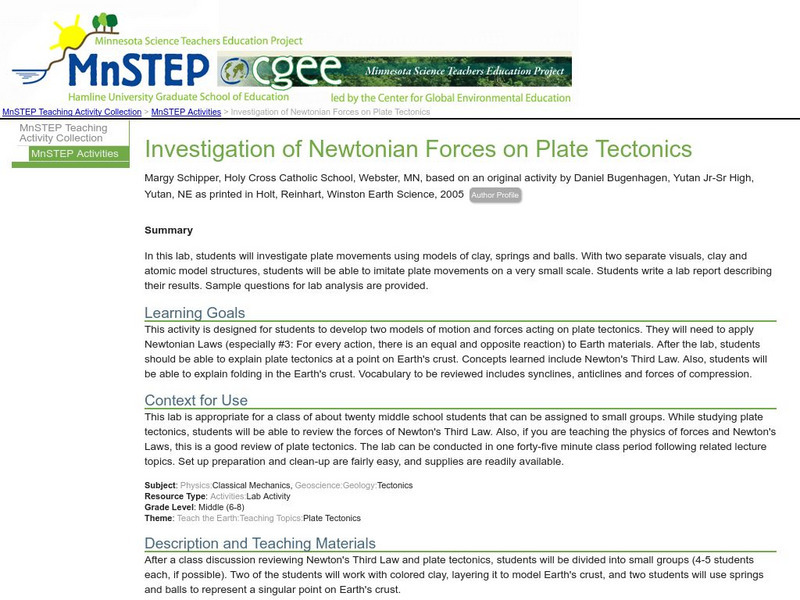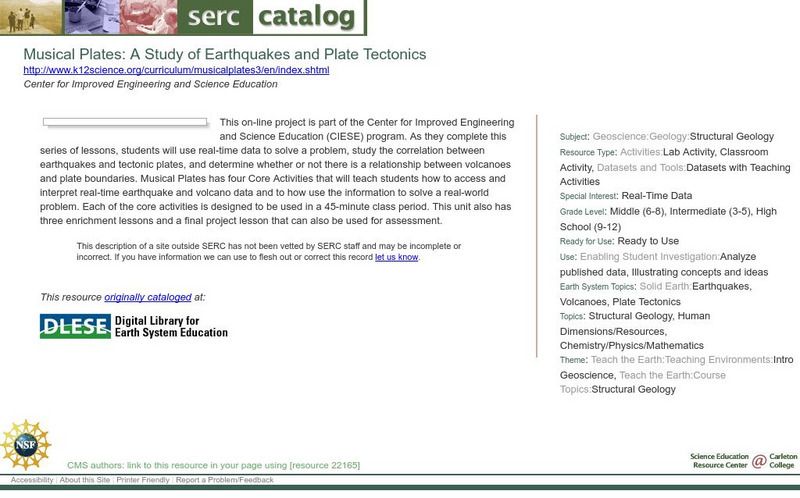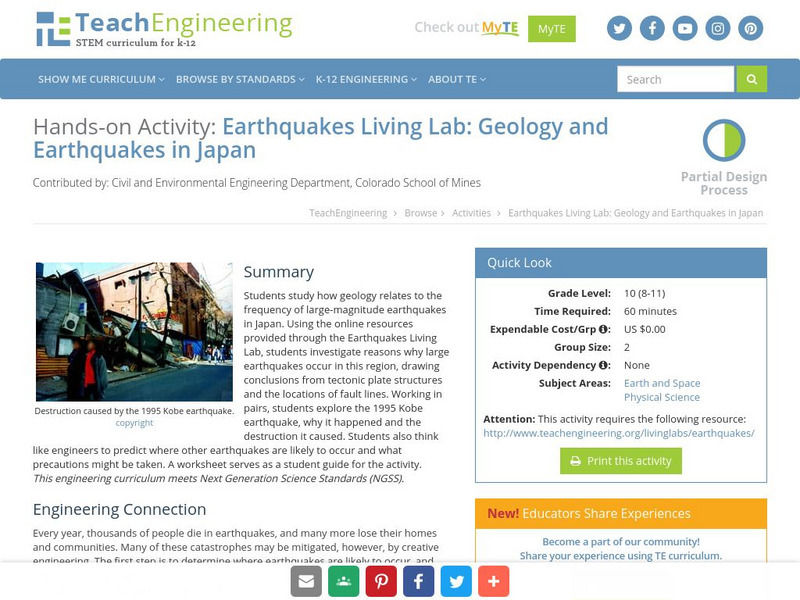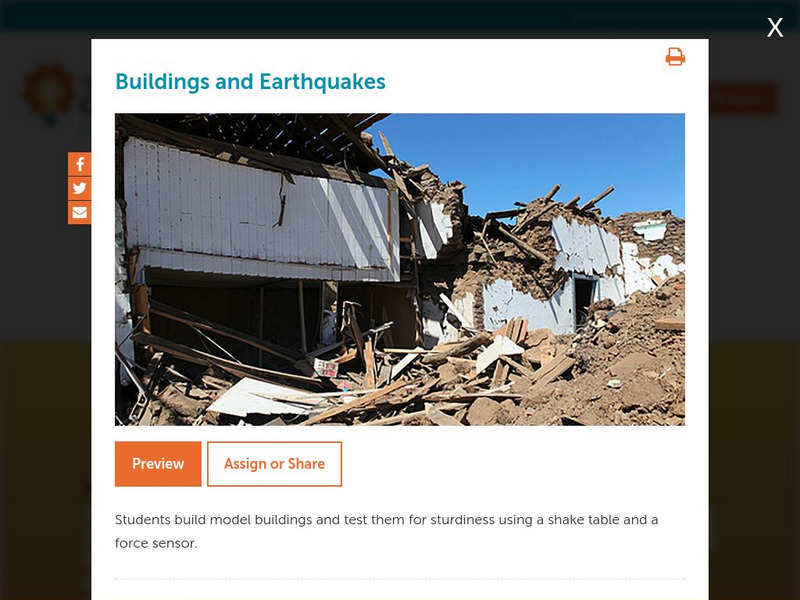Curated OER
Geology Rocks
Middle schoolers discuss information relating to Illinois geology. They examine top mineral resources in Illinois to find detailed information about geodes and where they can be found. Students complete geode lab to explore external...
Curated OER
Volcanoes
Students explore the formation of volcanoes. In this earth science lesson, students build their own volcanoes in the lab using different materials. They identify the different types of volcanoes.
Curated OER
Field Research Project: Comparing the Parent Rock Material of the San Francisco Terranes With Local Soil Types
Students investigate rocks and minerals and take a field trip to sample soils. They analyze rocks and soil, research the geological terrenes of the topology of San Francisco, and produce a lab research report.
Curated OER
Earthquake Introduction
Students investigate basic principles and properties of earthquakes, including vocabulary, causes, and types of faults. They examine history of seismic activity in their home state, and complete "Locating Patterns of Distribution" lab.
Curated OER
Earthquakes and Seismic Waves
Students investigate the Richter scale and seismology in a teacher-led lab in which they are introduced to the concept of seismic waves and epicenter location. They further investigate the inner workings of a seismograph and practice...
Curated OER
Earthquakes and Seismic Waves
Learners explore earthquakes and seismic waves. They investigate how energy is released in the subsurface to create seismic waves. Students explore the inner workings of a seismograph and how they are used to determine the location of an...
Curated OER
Feeling Hot, Hot, Hot!
Students study the different types of volcanoes and how they erupt. In this volcano lesson plan students identify where volcanoes are most prevalent and options for predicting eruptions.
Curated OER
Poetry in Motion
Sixth graders answer questions about "From a Railway Carriage." They discuss different poetical forms. They work together to write a poem about travel.
Curated OER
Earthquake Experiments
Young scholars discuss the effects of earthquakes. For this earth science lesson, students create earthquake models and earthquake-proof buildings. They construct their own seismograph.
Curated OER
Looking into Earth with GIS
Students work with data from a seismic wave model in a freely available GIS (geographic information system) program, ArcVoyager SE. Using a GIS, they examine maps and produce graphs to explore variations in seismic wave velocities at...
Science Education Resource Center at Carleton College
Serc: Investigation of Newtonian Forces on Plate Tectonics
An investigation for students to understand plate tectonics by using models to see how motion and forces act on the plates. Students can use these models to see the connection between Newtonian Laws to Earth materials. Lesson plan...
TeachEngineering
Teach Engineering: Earthquakes Living Lab: The Theory of Plate Tectonics
Working in pairs, students think like engineers and connect what they understand about the theory of plate tectonics to the design of structures for earthquake-resistance.
Science Education Resource Center at Carleton College
Serc: Musical Plates: A Study of Earthquakes and Plate Tectonics
Four part lab activity involves students using real-time data to solve a problem, study the correlation between earthquakes and tectonic plates, and determine whether or not there is a relationship between volcanoes and plate boundaries.
TeachEngineering
Teach Engineering: Earthquakes Living Lab: Geology and Earthquakes in Japan
Using the online resources provided through the Earthquakes Living Lab, students investigate reasons why large earthquakes occur in Japan, drawing conclusions from tectonic plate structures and the locations of fault lines.
Concord Consortium
Concord Consortium: Stem Resources: Buildings and Earthquakes
Do you think you can build a house that can withstand the shaking from an earthquake? In this activity, students design and construct model building that will be tested on a shake table with a force sensor. Activity includes questions...





